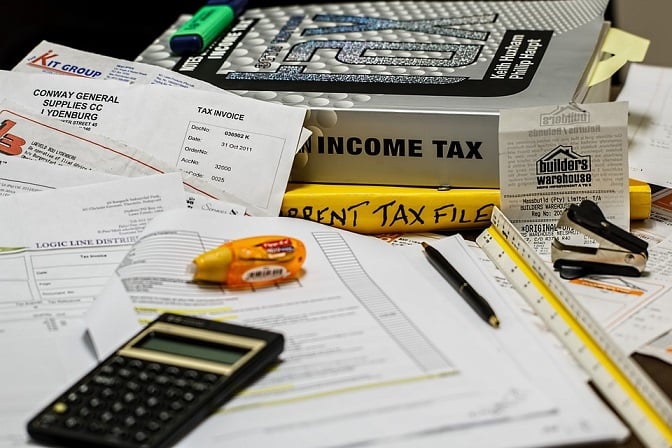Ensure that you are fully prepared for Making Tax Digital, which was introduced in 2019. As a small business, tax can be complicated at the best of times, especially when you are not as prepared as you could be for any changes in how you are taxed. Read more to find out how you can be fully prepared for the change, and how David Howard can help your business to achieve that.
|
Tools To Help Small Businesses With MTD |
The Story So Far: What Is Making Tax Digital?
Making Tax Digital (MTD) is changing the way that small businesses engage with HMRC and manage their tax liabilities. Introduced in 2019, the initiative affects the way that companies manage their books and records, and how they file their VAT returns. As part of a phased roll-out, important new rules are being introduced in 2022.
Many business owners are reporting mixed success with the transition. A recent government report reveals that companies generally benefit from the time saved by
using software, but that fully compatible software can be overly complex and too expensive. The report also lists barriers such as “financial and digital confidence, and emotional barriers such as anxieties about change.”
This guide is intended to help small business owners gain awareness and confidence regarding MTD compliance. It explains the new changes and the current tools that can help to make the process easier. It also outlines how an experienced Chartered Accountant, such as David Howard, can support small businesses during the transition and beyond, giving advice about the right skills to look for.

What Is 'Making Tax Digital'?
Making Tax Digital (MTD) is an HMRC initiative to improve the accuracy, streamlining, and efficiency of the tax system. The goal is to make the process faster, easier, and more accurate. The government report linked above suggests that so far only one of these goals – accuracy – is a stand-out success. This is because automated software overcomes the human errors that are often found in even the most meticulous of manual systems. Although errors have been reduced, the report finds that companies are still finding the change complex to navigate.
Since April 2019, small businesses over the current £85,000 VAT threshold have been obliged to hold a digital account with HMRC, and smaller businesses could choose to opt-in.
Companies still need to submit a quarterly return, and the format of VAT returns remain unchanged. The only difference prior to April 2022 was that returns needed to be completed and filed online using a compatible software platform (e.g. Xero).
The major change for April 2022 is that all VAT-registered businesses, regardless of their turnover, will now have to submit their VAT returns digitally.
Why this move came about
The concept behind MTD is efficiency. It is often described as the ‘modernisation’ of the tax system, keeping the process in-line with the broader shift to digital. Many companies already make use of accounting software to manage financial aspects such as payroll and invoicing. MTD brings VAT and tax in-line with this trend.
The MTD system also offers companies advice and support, with webchat and secure messaging features meaning that help can be given more quickly. The aim of this is to reduce the stress of the transition, as well as helping HMRC understand the challenges that small businesses are facing regarding their tax. As such, MTD can be thought of as a communication avenue as much as an obligatory process.
All VAT registered businesses will now need to follow rules from the first stage introduced in 2019
Making Tax Digital is a phased transition. The Covid pandemic delayed the initial timeline, but HMRC has announced that it is now ready for the important second phase. As of April 1st 2022, turnover is no longer a factor in MTD obligations.
Every VAT-registered company must now use the scheme, even if turnover is below the £85,000 threshold. (Note that there is still no legal obligation for businesses below the £85,000 threshold to register for VAT.)
To avoid paying VAT twice, the MTD sign-up dates are crucial. To make this change, businesses need to have signed up to MTD to make their first VAT return on or after 1st April 2022. The sign-up must happen at least five days after their last non digital VAT return deadline, and less than seven days before they make their initial MTD VAT return.
By bringing all VAT-registered businesses into the MTD system, the government hopes to help companies reduce taxation errors while improving accounting standards and efficiency. There may be a range of benefits, such as helping organisations improve their financial forecasting and cash flow while avoiding penalties.
.webp?width=471&height=600&name=Untitled%20(550%20x%20700%20px).webp)
Annual income tax self-assessment will be replaced by quarterly MTD
By April 2024, a further phase of the MTD roll-out is expected. This will extend the system to include annual self-assessments. This is likely to be a big change, with self-employed individuals, sole traders, and landlords with an income above £10,000 per year needing to send quarterly updates, end-of-period statements, and financial declarations.
What Does This Mean?
1) As a business owner, you’ll have to keep records of your income and expenses digitally
From April 1st 2022, all VAT registered businesses will need to keep digital records of income and expenses. The only way to do this is via software. The details of how to do this are explained later in this guide, but business owners need to be aware that there will be a penalty for failing to create digital records.
2) Start sending quarterly updates of your business income and expenses to HMRC
With software helping to automate many of the financial obligations, reporting income and expenses should become much more straightforward. As such, all small businesses from 2022 onwards will be required to report quarterly statements. Self-employed individuals and landlords will be required to do so from 2024 onwards. This should ensure that accounts are accurate, while also helping with strategic planning, demand forecasting, and budgeting.
3) Finalise your business income with end of period statements and final declarations
From April 1st 2022, all VAT registered businesses will need to finalise their business income with end of period statements and final declarations. By using a digital
approach, companies should find that this requires little more than a click of a button. With a more efficient set-up, businesses should benefit from improved visibility and transparency.
Tools To Help Small Businesses With MTD
At David Howard, we have a number of software solutions available to help businesses with complying with MTD, including Xero, Quickbooks, FreeAgent and Sage. All of these software packages have different advantages but are extremely good value for money. More details can be found on our Services page, and if you’d like to discuss which would be best for you, please get in touch.
Do You Need An Accountant's Help?
Very few organisations thrive without the guidance of an accountant. Since publishing the first edition of this guide in 2019, the team at David Howard have seen this first-hand as companies face the challenge of shifting to new modes of thinking, operating, and surviving. While we support the introduction of Making Tax Digital, we have also seen – with a sympathetic eye – the headaches that it has caused. In this section, we take a look at some of the most common challenges and how to resolve or avoid them.

Are you unsure about what you’re doing with online accounting platforms?
Whether you’re unsure which platform will work for you, or whether you’re looking at your manual ledgers with a feeling of fear about the future, it’s ok to feel
unnerved by so many changes.
The important thing to remember is that software companies are working tirelessly to create the perfect solution. For this, they need your support so that your
feedback can improve their service.
To help during the transitional phase, accountants such as David Howard have invested heavily in mastering the technology so that our clients don’t have to. From
setting up to tweaking it to perfection, our expertise is here for you.
Are you worried about the time it’s going to take you to make this transition?
In business, time costs money. Every minute that is spent staring in frustration at a computer screen is felt in a loss of productivity. Stress is also known to be a major factor in reducing motivation and morale among business owners.
The idea behind MTD is that it will increase efficiency and reduce stress, but this may take a while to come to fruition.
Rather than handle the transition alone, calculate how many hours will be lost to mastering your new software systems and accounting techniques. If the hours will leave your business at a net loss, working with a professional accountant may be a much more efficient and cost-effective approach.
Do you need help understanding your new responsibilities under MTD?
Under MTD, it is very easy for companies to accidentally make an accounting error that leads to double charges or penalty payments. Small businesses and sole traders are particularly vulnerable to encountering an unpleasant surprise. Professional accountants with digital experience can safeguard your business during the transitional phase so that no obligations are missed.
Do you want to reduce the cost of managing your tax liabilities?
Although designed to help businesses, Making Tax Digital has come with a significant price tag. Investing in new software, incurring accidental penalties, training employees in new ways of working, and making inadvertent business errors can soon add up. It is also easy for businesses to over-invest in unnecessary software or miss a vital add-on that could save money. Working with an experienced cloud accountant lets small business owners streamline their accounting processes and focus on growing their enterprise.
What To Ask Your Accountant?
The ideal accountant is a partner for life, so it’s important to choose wisely. In the context of Making Tax Digital, there are some specific questions that it may be helpful to ask.
Is your current accountant up to date on all the digital tools available to make MTD an easy process?
Just as some clients are more comfortable with their manual ledgers, so are many accountants. When choosing a partner to navigate the transition to digital, ensure that the accountancy firm is future focused. Ideally, they should have a committed and ongoing investment in training and development in digital and cloud-based tools, as well as an interest in long-term support for companies during the digital transition and beyond.
Are you paying too much to your accountant because they’re doing manual work that software could be doing for you?
Every business can benefit from improved efficiency, including accountancy firms. Today’s software can harness the power of automation to make light work of repetitive tasks and complex calculations. This can reduce the need to double-check for errors while freeing up time for communication. Accountants that are not yet making use of cloud-based software will take longer to complete their responsibilities, and the costs are passed on to clients. To make your digital transition cost-effective, partner with an accountancy practice that is focused on improving productivity rather than retaining outdated methods.
Are you unsure if your current accountant understands the latest changes and can offer the best advice?
Every accountant has their own area of speciality. Many well-respected accountants excel at traditional accounting methods and are themselves adjusting to the new changes. In some cases, there is little business incentive for successful accountants to master the art of moving to digital. If this is the case, they may not be the right partner to help you navigate the change. If in doubt, ask your accountant about their knowledge, experience, and understanding of the Make Tax Digital initiative to determine whether they are ideally placed to offer the level of support that you require.

